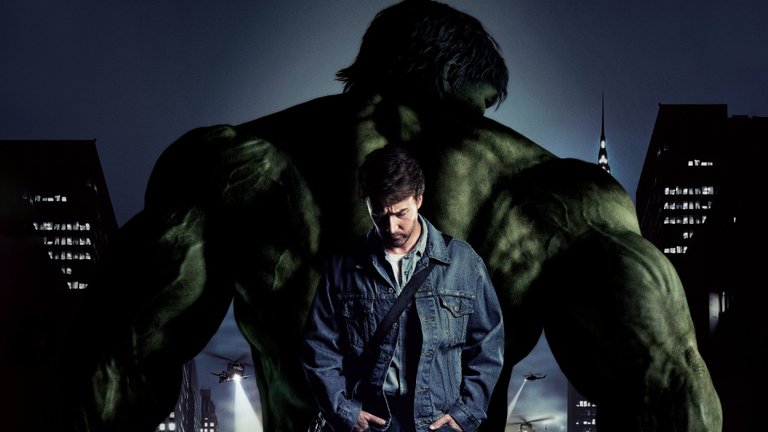Film Review: The Incredible Hulk (2008)

The Marvel Cinematic Universe (MCU) has long been perceived as Hollywood's golden ticket, a veritable "licence to print money." This success, however, has not come without its own set of challenges and missteps. One notable example is the 2008 film The Incredible Hulk, the second entry in the MCU, which remains one of the franchise's most obscure offerings.
The Incredible Hulk draws its inspiration from the iconic comic book series created by Stan Lee and Jack Kirby. The character had previously been adapted for the screen in two significant forms: first, as a popular television show in the 1970s featuring Lou Ferrigno and Bill Bixby, and later in a 2003 film directed by Ang Lee. While Ang Lee's Hulk aimed for an ambitious exploration of the character's psychological depth, it ultimately disappointed many fans and critics alike, leading to a collective yearning for a more straightforward interpretation of the green behemoth.
In this context, The Incredible Hulk serves as a sort of soft reboot. The film quickly recaps Bruce Banner's origin story within its opening sequence, introducing us to Edward Norton's portrayal of the character. Banner is depicted as a brilliant scientist whose radiation experiment goes awry, resulting in his transformation into a colossal green creature whenever he experiences intense emotions. This transformation nearly kills fellow scientist Betsy Ross (played by Liv Tyler) and her father, General Thaddeus Ross (William Hurt), who heads a secretive government weapons program. To escape capture, Banner retreats to Brazil, where he adopts a quiet life while seeking control over his condition through martial arts and breathing exercises. He maintains contact with an enigmatic figure known as Mr. Blue, who is attempting to help him find a cure. However, when a minor incident reveals his location, General Ross employs mercenary Emil Blonsky (played by Tim Roth) to catch him.
Despite being released only five years after Ang Lee's film, The Incredible Hulk initially appears less ambitious and more contained. This is partly due to its role as part of a larger cinematic universe rather than an attempt to launch its own franchise. French director Louis Leterrier wisely opted for a different approach than his predecessor; rather than focusing on grandiose visuals and complex narratives, he aimed for something more grounded.
This shift is exemplified by the film's decision to forego an extensive origin story. Instead, it resembles the 1970s television series more closely while emphasising the tragic aspects of Banner’s predicament over CGI spectacles. The recasting of Banner with Edward Norton plays into this narrative strategy; Norton's smaller stature creates a stark contrast with the Hulk's immense size. Moreover, his serious and intense acting style lends itself well to portraying Banner as a tragic hero—a man grappling with extraordinary circumstances.
In the film's first half, this realism shines through vividly against the backdrop of Brazil's favelas, providing a unique flavour that enhances the narrative. The setting establishes an atmosphere that feels both gritty and authentic, allowing audiences to connect with Banner’s plight on a deeper level.
However, The Incredible Hulk begins to falter when Banner confronts his past. The chemistry between Norton and Liv Tyler is lacking; their interactions fail to convey the emotional weight necessary for their relationship to resonate. Additionally, Tim Roth’s portrayal of Blonsky comes across as unconvincing; rather than embodying a formidable adversary, he appears disinterested in his role. As Blonsky transforms into the supervillain Abomination, the climactic showdown in Harlem devolves into yet another uninspired display of CGI violence that lacks emotional engagement.
When evaluated on its own merits, The Incredible Hulk does not stand out as particularly remarkable within the superhero genre. It is understandable why the character has not received further solo films despite being integrated into The Avengers four years later. Norton's tenure as Banner was marred by reported conflicts on set and "creative differences," leading to his eventual recasting with Mark Ruffalo in subsequent MCU entries. Consequently, Norton's version of Hulk has become somewhat of an awkward footnote in Marvel's history—a character that fans appreciate but one that remains largely unacknowledged within the broader franchise narrative.
RATING: 6/10 (++)
Blog in Croatian https://draxblog.com
Blog in English https://draxreview.wordpress.com/
InLeo blog https://inleo.io/@drax.leo
Hiveonboard: https://hiveonboard.com?ref=drax
Rising Star game: https://www.risingstargame.com?referrer=drax
1Inch: https://1inch.exchange/#/r/0x83823d8CCB74F828148258BB4457642124b1328e
BTC donations: 1EWxiMiP6iiG9rger3NuUSd6HByaxQWafG
ETH donations: 0xB305F144323b99e6f8b1d66f5D7DE78B498C32A7
BCH donations: qpvxw0jax79lhmvlgcldkzpqanf03r9cjv8y6gtmk9
Not gonna lie I thought this one was kind of underrated! I found it fairly enjoyable for sure.
Congratulations @drax! You have completed the following achievement on the Hive blockchain And have been rewarded with New badge(s)
Your next target is to reach 200000 upvotes.
You can view your badges on your board and compare yourself to others in the Ranking
If you no longer want to receive notifications, reply to this comment with the word
STOP